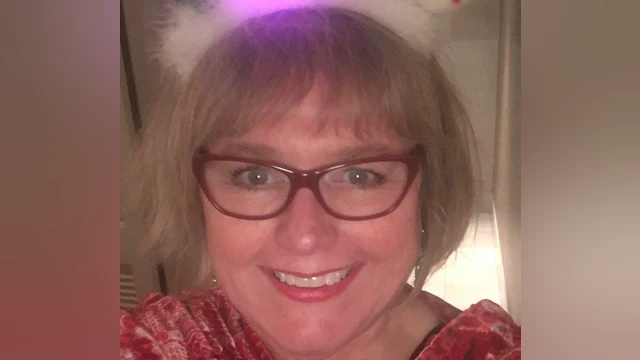After my husband Victor died by suicide, I thought I would never laugh again. I mean, why would I? Death is devastating. My partner for 30 years was gone. That’s bad enough but the type of loss – suicide – felt like it had doubled that devastation.
Memories of my husband – even the happy ones – became wrapped up with questions like: “Could that have been the turning point where things became unbearable for him?” and, “What was he really thinking?”
That led to other inevitable questions: “What could I have done?” “Why didn’t he tell me?” "Why didn’t he call me?”
The woulda-coulda-shoulda’s that are never resolved.
For the first couple of years after my loss, reclaiming the interests, activities, and relationships I had before my husband’s death seemed impossible – let alone laughing or smiling.
There’s a type of grief that occurs from something called “secondary losses,” which are the repercussions from a primary loss. Secondary losses can include friends who distance themselves, traditions that lose meaning, lifestyle changes, disengagement from family – and it can also include losing what you feel is the best part of oneself. In my case, it was my sense of humor, and the ability to laugh.
After Victor died, I was certain I’d never come close to the funny girl I once was. Humor and laughter were always so important in my life before I met Victor, and it was important in our relationship. We both had a funny bone.
I was so deep into my loss that I never thought I would come out of it. Not only did I miss him and my life with him, but I missed the best parts of myself that I was sure died with him – my sense of humor, my whimsy, my enthusiasm, my hopefulness.
Thinking I’d never again be able to see the world through lightness and laughter was a secondary loss for me. Not only was the silliness I enjoyed with my husband gone; it was like I had lost the best part of myself.
I was afraid, and nearly convinced, that my sense of humor was gone forever.
In a podcast interview with Alan Alda called “Making the End a Beginning,” Rabbi Steve Leder said, “When I am gathered with a family to talk about a loved one who has died and to prepare for the funeral, the minute I hear one of them crack a joke, and everyone else laugh, I know they have internally made a decision to survive this loss.”
Three weeks after Victor died in January of 2019, I had a memorial for him in our home. As I was making my rounds to say hello to people and to thank them for coming, I stopped in the middle of the kitchen, and blurted out to no one in particular, “I can’t believe he did this before the Mueller Report came out!”
I cracked a joke.
Everyone within earshot chuckled. And I smiled. Although I didn’t know it at the time, I was on the way to surviving my loss. I was on the way to saving me.
I’m not saying people should yuk it up at a funeral, and my coping mechanism may not be yours. But after someone dies by suicide (or any other way), it is okay to laugh. To smile again. You aren’t insulting your loved one. You aren’t telling the world you’re fine. You aren’t making light of what happened. The loss you suffered will be with you the rest of your life. It is possible to experience multiple emotions at once, and to recognize that sometimes, even in small, bittersweet ways, humor still exists in the world, even in the midst of pain. It is part of life.
The key word there is – life. You deserve to have a life again and laughter can be that bridge between the searing pain of loss and a future with hope.
I did a Google search on humor and spousal grieving and came across several studies. In one, it said that keeping one’s sense of humor during loss leads to “greater coping efficacy, reduced incidence of negative physical and emotional symptoms, and, overall, aids individuals in functioning during grief.”
Another study said, “Experiencing humor, laughter and happiness was strongly associated with favorable bereavement adjustments (lower grief and depression) regardless of the extent to which the bereaved person valued having these positive emotions.”
I never thought I could laugh again after Victor died. But, after three years, I’m beginning to see the world through healing eyes, not grieving eyes. I do have moments of lightness and laughter. It’s not the same as before. It’s different. But it feels good when I laugh. When I crack a joke. When I smile.
No matter what studies show, you may think you’ll never be able to laugh again – and it may take a while, but it will happen.
In the meantime, keep your head up and eyes open to what you always loved about yourself. Whatever it is. Think hard about what will save you. For me, it was my sense of humor. For you, it might be something else. Whatever it is, find what will help move you forward through the morass of loneliness and helplessness.
And don’t forget to smile.
